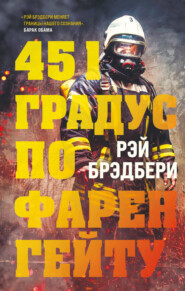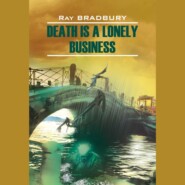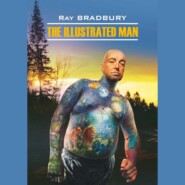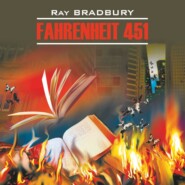По всем вопросам обращайтесь на: info@litportal.ru
(©) 2003-2024.
✖
Ray Bradbury 3-Book Collection: Fahrenheit 451, The Martian Chronicles, The Illustrated Man
Автор
Год написания книги
2019
Настройки чтения
Размер шрифта
Высота строк
Поля
After the book was published, in the following years I’ve had hundreds of letters from readers asking me what became of Clarisse McClellan. They were so intrigued with this fascinating, strange and quixotic girl that they wanted to believe that somewhere out in the wilderness with the book people she had somehow survived.
I resisted the temptation to bring her back to life in future editions of my novel.
I left it to François Truffaut in his film version of Fahrenheit 451 in 1966 to give Clarisse a return to life, even though he had changed her name and given her extra years of maturity, which at the time I thought was a great mistake. But she did survive to the end of the film and at that time I decided that Truffaut was correct.
When I wrote the first version of the play I allowed Clarisse to survive among the book people in the wilderness. The same practice occurred when I wrote the opera.
She was too wonderful a character to be allowed to die and I realize now that I should have allowed her to appear at the end of my book.
That being said, the book is complete and untouched. I will not go back and revise anything. I have a great respect for the young man that I was when I sat down in that basement room with a bag of dimes and plunged into the passionate activity that resulted in the final work.
So here, after fifty years, is Fahrenheit 451. I didn’t know what I was doing, but I’m glad that it was done.
PART ONE (#ulink_dcfb96d1-0389-5693-bc2d-8daf2807bd5f)
It was a pleasure to burn.
It was a special pleasure to see things eaten, to see things blackened and changed. With the brass nozzle in his fists, with this great python spitting its venomous kerosene upon the world, the blood pounded in his head, and his hands were the hands of some amazing conductor playing all the symphonies of blazing and burning to bring down the tatters and charcoal ruins of history. With his symbolic helmet numbered 451 on his stolid head, and his eyes all orange flame with the thought of what came next, he flicked the igniter and the house jumped up in a gorging fire that burned the evening sky red and yellow and black. He strode in a swarm of fireflies. He wanted above all, like the old joke, to shove a marshmallow on a stick in the furnace, while the flapping pigeon-winged books died on the porch and lawn of the house. While the books went up in sparkling whirls and blew away on a wind turned dark with burning.
Montag grinned the fierce grin of all men singed and driven back by flame.
He knew that when he returned to the firehouse, he might wink at himself, a minstrel man, burnt-corked, in the mirror. Later, going to sleep, he would feel the fiery smile gripped by his face muscles, in the dark. It never went away, that smile, it never ever went away, as long as he remembered.
He hung up his black-beetle coloured helmet and shined it, he hung his flameproof jacket neatly; he showered luxuriously, and then, whistling, hands in pockets, walked across the upper floor of the fire station and fell down the hole. At the last moment, when disaster seemed positive, he pulled his hands from his pockets and broke his fall by grasping the golden pole. He slid to a squeaking halt, the heels one inch from the concrete floor downstairs.
He walked out of the fire station and along the midnight street toward the subway where the silent, air-propelled train slid soundlessly down its lubricated flue in the earth and let him out with a great puff of warm air on to the cream-tiled escalator rising to the suburb.
Whistling, he let the escalator waft him into the still night air. He walked toward the corner, thinking little at all about nothing in particular. Before he reached the corner, however, he slowed as if a wind had sprung up from nowhere, as if someone had called his name.
The last few nights he had had the most uncertain feelings about the sidewalk just around the corner here, moving in the starlight toward his house. He had felt that a moment before his making the turn, someone had been there. The air seemed charged with a special calm as if someone had waited there, quietly, and only a moment before he came, simply turned to a shadow and let him through. Perhaps his nose detected a faint perfume, perhaps the skin on the backs of his hands, on his face, felt the temperature rise at this one spot where a person’s standing might raise the immediate atmosphere ten degrees for an instant. There was no understanding it. Each time he made the turn, he saw only the white, unused, buckling sidewalk, with perhaps, on one night, something vanishing swiftly across a lawn before he could focus his eyes or speak.
But now, tonight, he slowed almost to a stop. His inner mind, reaching out to turn the corner for him, had heard the faintest whisper. Breathing? Or was the atmosphere compressed merely by someone standing very quietly there, waiting?
‘He turned the corner.
The autumn leaves blew over the moonlit pavement in such a way as to make the girl who was moving there seem fixed to a sliding walk, letting the motion of the wind and the leaves carry her forward. Her head was half bent to watch her shoes stir the circling leaves. Her face was slender and milk-white, and in it was a kind of gentle hunger that touched over everything with tireless curiosity. It was a look, almost, of pale surprise; the dark eyes were so fixed to the world that no move escaped them. Her dress was white and it whispered. He almost thought he heard the motion of her hands as she walked, and the infinitely small sound now, the white stir of her face turning when she discovered she was a moment away from a man who stood in the middle of the pavement waiting.
The trees overhead made a great sound of letting down their dry rain. The girl stopped and looked as if she might pull back in surprise, but instead stood regarding Montag with eyes so dark and shining and alive, that he felt he had said something quite wonderful. But he knew his mouth had only moved to say hello, and then when she seemed hypnotized by the salamander on his arm and the phoenix-disc on his chest, he spoke again.
‘Of course,’ he said, ‘you’re a new neighbour, aren’t you?’
‘And you must be’ – she raised her eyes from his professional symbols – ‘the fireman.’ Her voice trailed off.
‘How oddly you say that.’
‘I’d – I’d have known it with my eyes shut,’ she said, slowly.
‘What – the smell of kerosene? My wife always complains,’ he laughed. ‘You never wash it off completely.’
‘No, you don’t,’ she said, in awe.
He felt she was walking in a circle about him, turning him end for end, shaking him quietly, and emptying his pockets, without once moving herself.
‘Kerosene,’ he said, because the silence had lengthened, ‘is nothing but perfume to me.’
‘Does it seem like that, really?’
‘Of course. Why not?’
She gave herself time to think of it. ‘I don’t know.’ She turned to face the sidewalk going toward their homes. ‘Do you mind if I walk back with you? I’m Clarisse McClellan.’
‘Clarisse. Guy Montag. Come along. What are you doing out so late wandering around? How old are you?’
They walked in the warm-cool blowing night on the silvered pavement and there was the faintest breath of fresh apricots and strawberries in the air, and he looked around and realized this was quite impossible, so late in the year.
There was only the girl walking with him now, her face bright as snow in the moonlight, and he knew she was working his questions around, seeking the best answers she could possibly give.
‘Well,’ she said, ‘I’m seventeen and I’m crazy. My uncle says the two always go together. When people ask your age, he said, always say seventeen and insane. Isn’t this a nice time of night to walk? I like to smell things and look at things, and sometimes stay up all night, walking, and watch the sun rise.’
They walked on again in silence and finally she said, thoughtfully, ‘You know, I’m not afraid of you at all.’
He was surprised. ‘Why should you be?’
‘So many people are. Afraid of firemen, I mean. But you’re just a man, after all …’
He saw himself in her eyes, suspended in two shining drops of bright water, himself dark and tiny, in fine detail, the lines about his mouth, everything there, as if her eyes were two miraculous bits of violet amber that might capture and hold him intact. Her face, turned to him now, was fragile milk crystal with a soft and constant light in it. It was not the hysterical light of electricity but – what? But the strangely comfortable and rare and gently flattering light of the candle. One time, when he was a child, in a power-failure, his mother had found and lit a last candle and there had been a brief hour of rediscovery, of such illumination that space lost its vast dimensions and drew comfortably around them, and they, mother and son, alone, transformed, hoping that the power might not come on again too soon …
And then Clarisse McClellan said:
‘Do you mind if I ask? How long have you worked at being a fireman?’
‘Since I was twenty, ten years ago.’
‘Do you ever read any of the books you burn?’
He laughed. ‘That’s against the law!’
‘Oh. Of course.’
‘It’s fine work. Monday burn Millay, Wednesday Whitman, Friday Faulkner, burn ’em to ashes, then burn the ashes. That’s our official slogan.’
They walked still further and the girl said, ‘Is it true that long ago firemen put fires out instead of going to start them?’
‘No. Houses have always been fireproof, take my word for it.’
‘Strange. I heard once that a long time ago houses used to burn by accident and they needed firemen to stop the flames.’
He laughed.

















